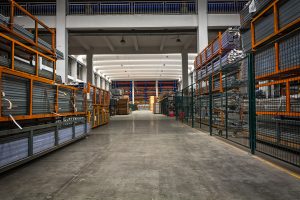Much of a commercial building’s energy costs go toward heating and cooling. Insulation is essential in achieving energy efficiency and increasing building inhabitants’ comfort levels indoors. Insulation reduces energy costs by keeping a facility at an optimal temperature without overworking the HVAC system. Plus, it helps manage moisture and increases the durability of a roofing system.
Table of Contents
ToggleReduces Heat Transfer
Insulation prevents heat transfer and helps regulate room temperature, minimizing energy consumption. It also minimizes noise pollution, creating a more pleasant work environment for employees.
Heat can move through a building in various ways, such as radiation, convection, or condensation. However, insulation materials prevent this by trapping air pockets, creating a barrier to heat flow. Insulation is rated by its R-value, which shows how well it prevents heat transfer.
Some types of commercial roofing insulation include mineral wool, polyurethane foam, extruded polystyrene (XPS), and spray-on foam. Generally, the higher the R-value, the more efficient the insulation. However, it’s important to note that the R-value decreases over time due to weathering and other factors.
Reduces Noise
Depending on the insulation type, roof insulation can provide significant acoustic benefits. It helps to minimize external noise transfer, creating a quieter indoor environment that enhances occupant comfort and productivity.
The acoustic properties of insulation also help to dampen the impact of rain, hail, and wind. It shields the residential roofing system from needless harm, necessitating expensive maintenance or replacement.
Insulation also reduces energy costs by trapping warm or cool air in a building, reducing reliance on heating and cooling systems. It translates into significant savings for business owners and their employees alike.
Insulation also protects the roof from excessive temperature fluctuations, minimizing strain on materials and extending the life of a commercial roof. This protection extends beyond the roofing membrane and can apply to any commercial roof. In addition to protecting the roof from extreme temperatures, insulation can help to prevent condensation buildup. It can avoid several serious problems, including membrane aging and moisture leaks.
Reduces Moisture Buildup
Insulation provides a barrier that helps to prevent moisture buildup and condensation inside the building. It contributes to extending the roof’s life by reducing the damage brought on by heat shock.
Many types of insulation are also fire resistant, providing a safe environment for building occupants. It is essential in areas that house sensitive equipment or materials.
The type of insulation used depends on the climate zone and type of roofing. Spray polyurethane foam is commonly used as a high-rated commercial roof insulation that can achieve an R-value of up to 7.2 per inch. Another option is extruded polystyrene (XPS), made through an extrusion process, offering an R-value of up to 6.5 per inch. These types of insulation are typically installed in a protective membrane roof system, such as a tar and gravel or PVC roof. They are also famous for cold storage buildings where freezers and coolers must be kept at a lower temperature than the surrounding air.
Increases Durability
A well-insulated commercial roof can help protect the building against the harsh weather conditions. It helps preserve the interior environment, enhance occupant comfort, and improve employee productivity.
A building’s needs can be considered while selecting the appropriate product and installation technique for roof insulation. Suitable options include spray foam and perlite board. Perlite boards combine recycled paper products and other substances to produce an economical and eco-friendly roofing insulation material. However, it is moisture-sensitive and requires regular maintenance.
Besides reducing energy costs and increasing energy efficiency, roofing insulation provides acoustic benefits in commercial buildings. It can help minimize noise transfer and create a quieter indoor space, which can be helpful for businesses located in busy neighborhoods or near highways. It can also aid in reducing condensation, which prevents mold growth and rot and safeguards the integrity of the roof structure. It also improves safety by discouraging people from falling through cracks or gaps in the insulation and other roof components.
More Stories
QR Scanner Technology Explained: How It’s Changing the Way We Make Contactless Payments
In today's fast-paced, tech-driven world, the need for quick, efficient, and secure payment methods has never been more crucial. Enter...
Choosing Between Luxury and Budget: Apartment Renting in Qatar
Renting an apartment in Qatar can be both exciting and overwhelming, especially when trying to balance between luxury and budget...
Vancouver Water Damage Restoration: Preventing Mold and Structural Damage
Water damage can be one of the most devastating issues homeowners and business owners face, particularly in a city like...
Batana Oil Benefits: A Hidden Gem for Hair and Skin Care
Batana oil, often referred to as "liquid gold" for hair and skin, is one of nature’s best-kept secrets. Extracted from...
How Evergreen Junk Removal Services are Simplifying Waste Management
Waste management plays a critical role in maintaining clean and organized spaces, whether in homes, offices, or construction sites. For...
Protecting Your Home: The Importance of Timely Roof Repairs in Union NJ
When it comes to maintaining your home in Union NJ, one aspect that should never be overlooked is the condition...


